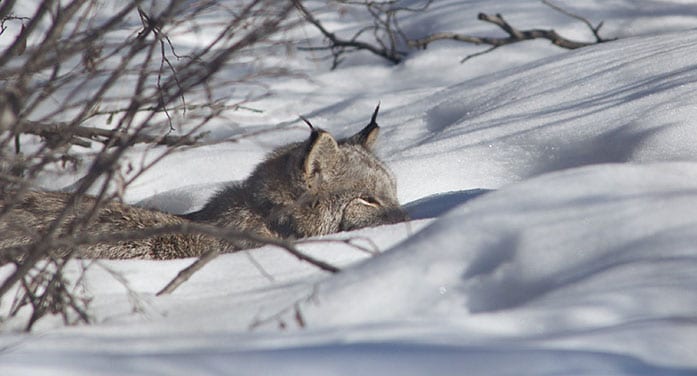Using a Fitbit and a spy mic, University of Alberta scientists have revealed new insights into the behaviour of the elusive Canada lynx. The research provides a first look at how miniaturized technology can open the door to remote wildlife monitoring.
“Working on one of the boreal forest’s top predators, the Canada lynx, we found that two different technologies, accelerometers and recording devices, can be used to remotely monitor the hunting behaviour of predators, even documenting the killing of small prey,” said Emily Studd, a post-doctoral fellow in the Department of Biological Sciences.
“We captured chases, screams of the prey as they were caught, calls of the prey as they escaped, and bones crunching, along with friendly and aggressive interactions between different lynx,” said Studd, who recently shared the recordings in a CBC interview.
Understanding the hunting behaviour of predators is key information for ecologists, providing insight into the well-being of an ecosystem, Studd noted.
“Unfortunately, predators are naturally secretive animals due to their need to sneak up on their prey, which makes studying them and recording this information incredibly difficult,” explained Studd, who completed the research under the supervision of Professor Stan Boutin in the Faculty of Science and Murray Humphries at McGill University.
“Our use of accelerometers and audio recorders provides two highly effective novel methods that can be applied to any predator to monitor hunting behaviour continuously to collect this critical information.”
Collaborators on the study include Rachael Derbyshire of Trent University and Allyson Menzies of McGill University. The research is part of the Kluane Canada lynx project. Funding for the project was provided by the Natural Sciences and Engineering Research Council, the Weston Family Foundation and Institut Nordique du Québec.
The study, “The Purr‐fect Catch: Using accelerometers and audio recorders to document kill rates and hunting behaviour of a small prey specialist,” was published in Methods in Ecology and Evolution.





























